There is so much more to tabletop roleplay games — especially ones involving sprawling fantasy worlds and measured combat, like Dungeons and Dragons — than character sheets, dice, and exchanging witty barbs with friends. That’s not to say those aren’t important aspects of tabletop, because they are; but for many, the art of creating visual aids for their campaigns is paramount to the experience. Enter the new Critical Role series hosted by Will Friedle, Mini Primetime, where he teaches the cast how to paint their Mighty Nein mini figures using special techniques to bring their characters to life in a new way.
Mini Primetime is designed for both beginners and veterans who want to craft cool, unique mini figures using specific techniques. In each short episode, Friedle works with a different member of the Critical Role cast to explore a different miniature painting technique.
Ahead of the series premiere on Oct. 30, The Beat hopped on the phone with host Will Friedle to talk about his own history with D&D, what it was like teaching the Critical Role cast how to paint tiny versions of their fictional selves, and who among them is hiding an artistic streak.
Samantha Puc: To start off, in case some our readers aren’t familiar, can you tell me your history with Dungeons and Dragons?
Will Friedle: I started playing D&D on Critical Role, so the first time I ever played Dungeons and Dragons was on camera, in the middle of their first campaign, with Matthew Mercer as my DM. So, no pressure.
Puc: Yeah, totally fine. That’s a fine situation.
Friedle: I wanted to play for a long time. Matt had invited me beforehand and I wasn’t able to make it, and then we ran into each other again at Comic-Con down in San Diego years ago. He said, “Hey, man, you want to come on the show?” And I said, “Sure!” And I’ve been addicted to D&D ever since.
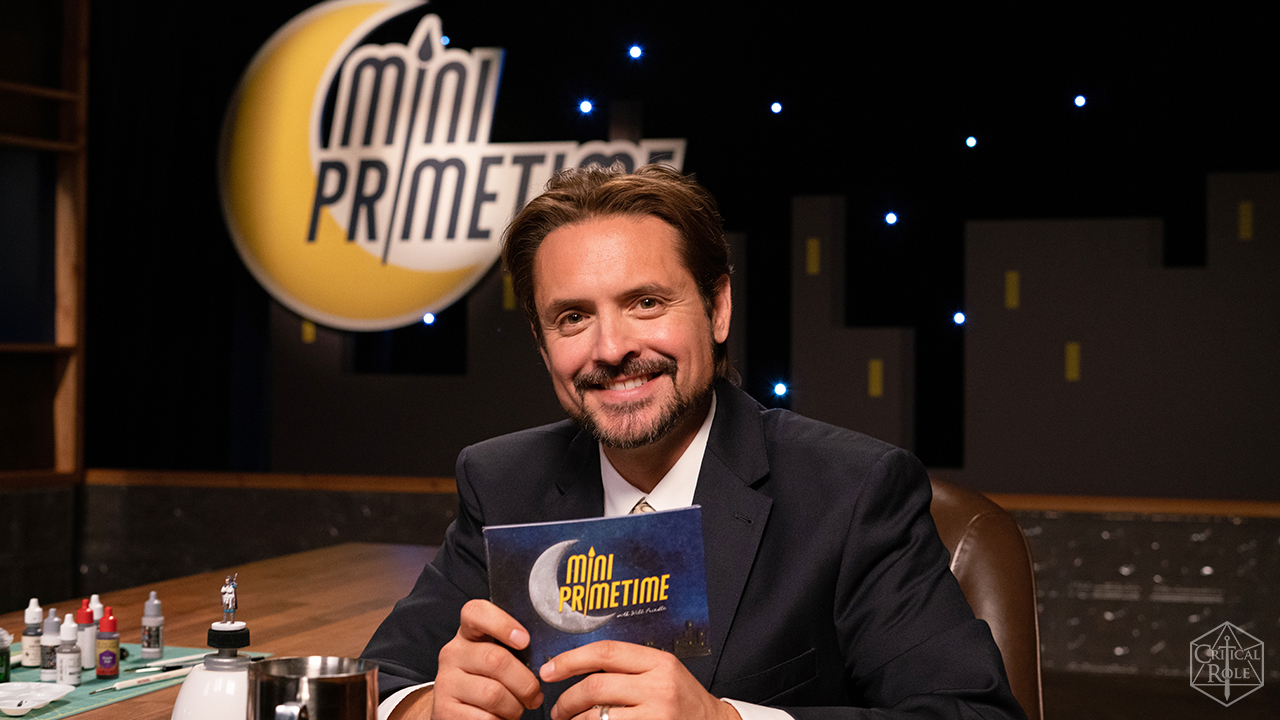
Puc: I know with Painter’s Guild, you were the beginner when it came to painting minis, but it seems like with Mini Primetime, that role has reversed and you’re now the master teaching the Mighty Nein how to do their minis. Can you walk me through that transformation and what that’s been like?
Friedle: Well, first of all, “master” is— I am still learning. I am certainly better than I was. It’s hard not to be when some of the painters in the world — at least in the country — are coming to teach me how to paint. I had some incredible teachers on Painter’s Guild.
The thing we wanted to make sure of with Mini Primetime is that we weren’t doing the same old show, which is like, “Oh, here’s what we’re gonna do: we’re gonna paint one mini over two days and it’s going to take hours and hours to do it.” We did that show; it’s been done. We’ve done that before. We wanted to keep [Mini Primetime] very quick, very fun, very light, so we’re really only working on one or two techniques per episode.
Luckily, I come off as being better at it than I actually am in real life, because I can do one or two techniques pretty well. That being said, when you get to the Matt Mercer episode — Mercer was my first teacher and is still a much better miniature painter than I am. So when it was me “teaching him,” he really reversed the roles again — as well he should — and it was really the other way around and he was teaching me how to do stuff.
So the roles are reversed in that I am teaching, but I’m certainly not a master. Quite the opposite. I’m still learning as I go, but I’m a lot better than I was when I was painting with magic markers.
Puc: Fair enough. I’m currently DMing a campaign with some friends and we just bought a set of minis, but rather than invest in acrylic paints, we decided we were just going to use nail polish because it already comes with tiny brushes. And honestly, it wasn’t bad! It was an OK system, but I can definitely relate to the magic marker struggle.
Friedle: That was Ben Foster taking pictures of it and shaming me online, which was how Painter’s Guild actually started, with Marisha [Ray] seeing my magic marker mini. So, Mercer got me into Dungeons and Dragons and Marisha got me into mini painting. That husband and wife team are responsible for a lot of my nerdom, which is great.
So proud of how far @willfriedle has come in #Painterguild, and so stoked to remind him of his magic marker moment of glory whenever I can! https://t.co/hzRucy6IZh
— Marisha Ray (@Marisha_Ray) January 5, 2018
Puc: So how many minis have you painted now?
Friedle: Oh, geez, 50, maybe?
Puc: Do you feel like you get better with each one?
Friedle: Oh, yeah, yeah, yeah. And it’s funny, because it’s one of those things where I’ll go back to old [episodes of Painter’s Guild] and actually turn it on to learn a technique, or relearn a technique. I think I’ll be able to do that really well with Mini Primetime because, again, it’s technique-based. You don’t have to sit there an watch us paint a mini for five hours, starting with priming and going from there. It’s more like, “Oh, that’s right. I want to learn how to fade again. Boom! I can just put on this episode.”
You can just throw on a quick episode of 10-12 minutes, and you get to see everybody from Critical Role that you love learning as they go, and being interviewed in a very funny, kind of ridiculous way as we’re painting. We definitely wanted to keep it light.
My favorite part of mini painting is just the zen of it. If I’m really stressed or really anxious, I can pull out my stuff and pull out a mini and put on some music, and I’m good to go for hours. That’s the joy of it. Yeah, you get better, obviously, with every mini that you do, but one thing I tell every beginner painter is that — for some reason, there’s this feeling of inevitability with painting. It’s like, “Well, if I ruin it, then it’s broken.” That’s not how it works with painting. If you don’t like it, spray paint over it and start again.
Mr. Bob Ross always said, “There’s no mistakes, only happy accidents.” That’s doubly true with mini painting, because you literally just start over and do it again. It’ll take time, but other than that, you’re not ruining anything. Anybody who plays D&D or any type of tabletop usually has a box of minis somewhere in their house that they have yet to paint. That’s the joy of these shows, is that you get into your first one and — like you just said with the nail polish — [most people] are like, “It wasn’t bad! It didn’t come out badly.” Then you want to do more, so you jump into it and the next thing you know, it’s like, “Oh, I’ve been painting for 11 hours.” That’s how it works. It’s a great way to lose a day, if you want.

Puc: Do you have a favorite mini painting technique, or a few favorites?
Friedle: Yeah! I’m starting to evolve, actually, which you do a lot with mini painting. I’m almost exclusively doing wet palette stuff now, which is a big jump for me. So as opposed to, you shake your paints, you crack your paints, you put them in your palette and you paint onto your mini, a wet palette is you taking wet blobs of paint and putting them on a palette that is constantly wet. It keeps your paints wet the entire time. It allows you to blend the colors as you’re moving.
You’re working on almost like a piece of wax paper that’s on top of a spongey substance, so when you put your paint on there, the water kind of absorbs through it and keeps your paints very liquid. You can blend, just literally pull one color into the next. You’re blending as you go and fading as you go; it’s a much more difficult technique, but one that I’m doing almost exclusively now — not particularly well, but I’m learning as I go. It’s a cooler way of blending paints and colors.
Then I’m a huge fan of — any beginning painters are usually big fans of washes, which I am. We call it “talent in a can.” You finish painting and look at it and go, “Oh, OK, that’s good.” Then you throw a wash on it and it’s like, “I’m a genius! This is the most brilliant paint job in the history of miniatures!” It’s really just the wash.
Puc: Aside from the wet palette, what are your preferred tools for painting miniatures?
Friedle: You always want to make sure that you have a couple really good brushes, your sets of washes. The other really important thing that a lot of people tend to forego is that they get all the stuff and then they sit down and realize they don’t have a decent light source. The next thing that you’re going to want to do — and they don’t have to be expensive, I think mine were $6 or $7 each — but I got a couple of really nice desk lamps. You don’t want just one; if you throw one on from whatever angle, you’re casting shadow. So put one up on either side and then paint in between the two of them. That’s something that’s pretty important. You also want to make sure you have clear bulbs and that they’re not too yellow.
When you get into more difficult techniques, that’s when it gets a little crazy, when you literally are painting from a light source. You prime your mini either white or black, depending on how you want it to look, and then — let’s say you prime it white. You then take a can of black spray paint and decide where you want the light source to be, then hit it really light with one spray. Wherever the black hits, that’s where your light source is coming from, so you paint as if that side is brighter. That’s a difficult technique that a lot of master painters are pretty darn good at, that I’m still working on.
Puc: Speaking to Mini Primetime specifically, was there a cast member that was easiest to teach?
Friedle: Well, again, Mercer was already better than me, so it’s hard to teach him anything. By watching them play, by watching them work — and also having worked with them as voiceover actors — they’re genuinely artistic people anyway, so they picked it up pretty quickly. I think — I don’t want to get into [the specifics of the episode] — but Laura Bailey and I just had a ton of fun. It was like an arts and crafts episode and we just had a blast doing it.
Everybody picked it up, though. I mean, everybody. We were really enjoying sitting there talking and throwing them some curveballs with some random questions and painting. Again, it’s the joy of knowing that we didn’t have to sit and paint for nine hours to get it done. We used certain techniques and we can do those pretty quick, so you can be in the middle of painting your mini and think, “Oh man, how do I do battle damage again?” Pop on a really quick episode and you’re right there, so stuff like that is going to be really helpful.
Puc: Did you find that any of the cast members had hidden artistic streaks related to painting? Was anyone really into finger painting as a kid, or anything like that?
Friedle: Whenever you get into Mercer, Mercer is one of those guys where whatever you bring up, it’s something he was good at once in his life and then he decided to stop doing it. He’s just That Guy, where it’s like, oh yes, oil painting! “Oh yeah, I did that.” Writing! “Oh yeah, I did that.” He’s just that good at those things, so he’s always been painting and doing that stuff. Marisha is very good at painting.
But there was not one of them — literally not one of them — where it was like, “Hmm, you’re not good at this. Ooh, wow, this is not for you.” Every single one of them picked it up and every single one of them did really well, so that was surprising. I say it was surprising because you expect there to be at least one person who’s not good at it, but when you know them and you know how artistic they are, I guess it really isn’t surprising. It’s just another artistic outlet. They’ve got so many that it was kind of like, “Let’s try something different and let’s do some mini painting.” And they were all like, “Great! Let’s give it a shot.”
Everybody did well, and the funny thing is, no one thought they were going to do well. I remember when we were starting to do the show and we were talking about who was coming on when, Travis [Willingham] was like, “Oh, man. I’m happy to come on; I can’t wait, but ooh, it’s going to be a trainwreck. I am not gonna be good at this.” Everyone said the same thing: “It’s gonna be fun to be out there with you, but you know, I’m not going to pick this up!” And every single one of them was good at it, so that was fun.
Puc: Do you think that’s a mark of them as creators, or a mark of mini painting itself?
Friedle: I think it’s a little of Column A and a little of Column B. People who want to get into mini painting all go, “Oh, I’m not artistic at all.” I tell them — and I’m not lying — I cannot draw a straight line. You put a paintbrush in my hand and a canvas, or a piece of chalk in my hand, and I can’t draw anything. I can’t paint anything. I’m terrible. So I assumed, like they did, that I was going to be awful with mini painting and I’m not! Once you pick it up, it’s all technique, and then you just kind of learn from the people you can learn from. Anybody can do it.
A very select group of people can take it to the level of some of the people that taught me, where it literally is art and belongs in museums. Most people won’t get there, because that’s a very specialized talent which I certainly don’t have. But being able to paint well enough to not only throw it on the table, but throw it on the table during a game and have people go, “Man, that’s really good!” Most, if not all people, can do that.
It is really just following certain steps and following techniques, and then it’s your own kind of journey of picking the colors you want. Do you want to wash it? Priming a mini white is going to make it look completely different than priming a mini black, so you’ve got just little things like that, which can change everything. Some people like to prime [their minis] purple! So then it comes down to personal choice.
There are women like this story or people I’ve worked with where I sit there and watch them paint and I go, “How are you doing that? It’s crazy!” We had one mini that came in where — again, tiny little miniature — and the shield that the knight was holding was a perfectly painted Mona Lisa. [Editor’s note: while attempting to Google this, I encountered this story about an artist painting a full, miniature replica of the Mona Lisa using his eyelash.] It’s like people who paint on grains of rice, where it’s like, “OK, I am never gonna get close to that.” But man, look at the artistic work. It’s just incredible.
And the American painters are really starting to step up. The European painters have been really crushing it for the last 10, 12 years … there are some of these Russian and German painters that are just crazy good. That’s why I balk a little when people are like, “Oh, you’re the master painter now!” I’m like, “Oh, no. I’m just hosting the show and I can make that guy’s cloak look kind of cool. That’s the extent of my talent.”
It’s one of those things where — if you want to have a fun night — get a couple friends, get a whole bunch of paint, put on some music, and just sit there and have a mini painting party. It is a ton of fun. It really is.
Puc: Aside from being so surprised that all of the Critical Role cast were able to pick this up even if they didn’t think they would, did anything unexpected happen during filming, or did anything surprise you?
Friedle: You’re going to have to watch, because it wasn’t unexpected for me but some of the questions were certainly unexpected for them. There’s some fun conversations that happen, that I don’t think they were prepared for. It’s going to be great.
Puc: Now, for some questions that aren’t directly related to Mini Primetime — how’s Kashaw doing? What’s he up to these days?
Friedle: Kash is probably hip-deep in kids at this point. I think he and Zahra probably have the twins and are off on their family adventures. He’s Kash, so he’s occasionally gotta drop some damage, wreck some stuff, and then just go from there.
Puc: Are you involved in any current D&D campaigns?
Friedle: I am! We have a home game, which, you know, trying to get eight or nine actors together is like wrangling cats, so we haven’t played in a while. Ben Foster’s one of my DMs, with Patrick Fugit, and we are in a very, very detailed campaign right now where the entire thing is Norse, which is really cool. We’re in a big Viking world. We keep trying to get back together, it’s Steve Bloom, myself, Brian Foster, Ashley Johnson — there’s a bunch of us that play, so we are just trying to get together and actually play again for months because everyone’s working. And then I just did a oneshot last weekend!
Puc: That seems to be the constant struggle.
Friedle: I know, it’s horrible. [Laughs]
Puc: What about Critical Role? Can we expect to see you on again any time soon?
Friedle: I don’t know! Matt knows what’s he’s doing and he very much has the world mapped out. It’s one of those things where I would love to come back on, but that’s up to him. We’ve got to see if I would fit in somewhere. If it’s not in this campaign, maybe there will be a third campaign some day, but who knows? I would certainly love to play with them again but that’s their world and I was just very lucky to be a very small part of it.
Puc: Have you been keeping up with the second campaign?
Friedle: A little bit, here and there. When you watch [Mini Primetime], you’ll see that’s one of the jokes that we have going. I try to keep up as much as I can with the important stuff going on, but there’s times where — as anybody who watches the show knows — you can get behind, and then suddenly you’re really behind, and it’s like, “OK, I need to dedicate some time to just catch up again.” It’s been a little while; I gotta catch up.
Puc: Is there anything else that you’d like to add?
Friedle: No! I’m pretty excited and we’re psyched that Mini Primetime is coming out. It’s been a long time in the making and I can’t wait for people to see some of their favorites in a new light and learn some new painting techniques. We’re psyched. We think this is going to be a really fun show.
Mini Primetime debuts Wednesday, Oct. 30 on the Critical Role YouTube channel. To learn more about the series, check out the teaser trailer below, and to keep up with Will Friedle on social media, follow him on Twitter or Instagram.


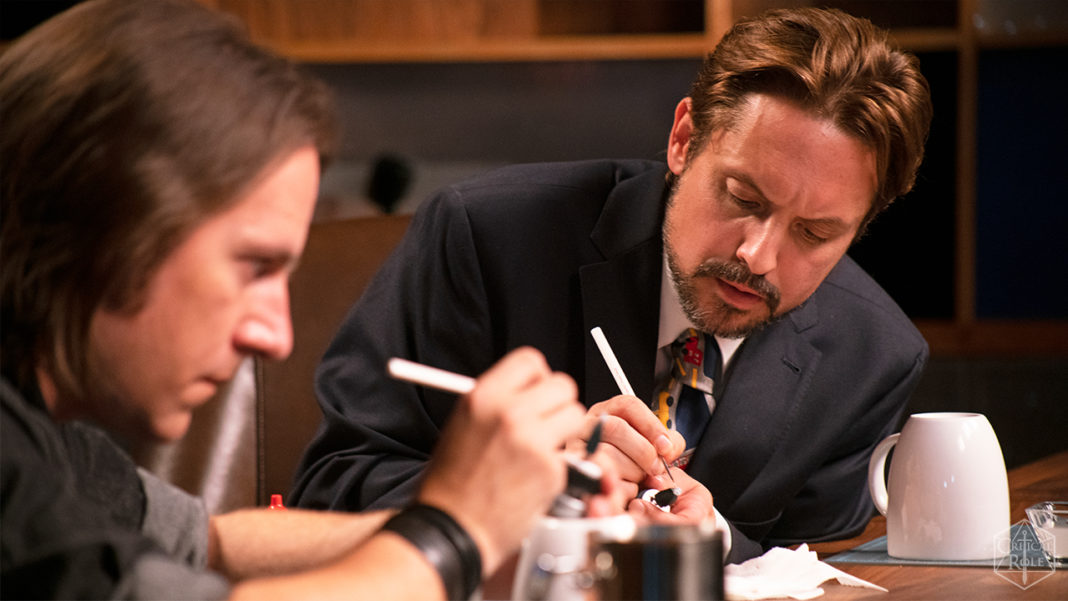
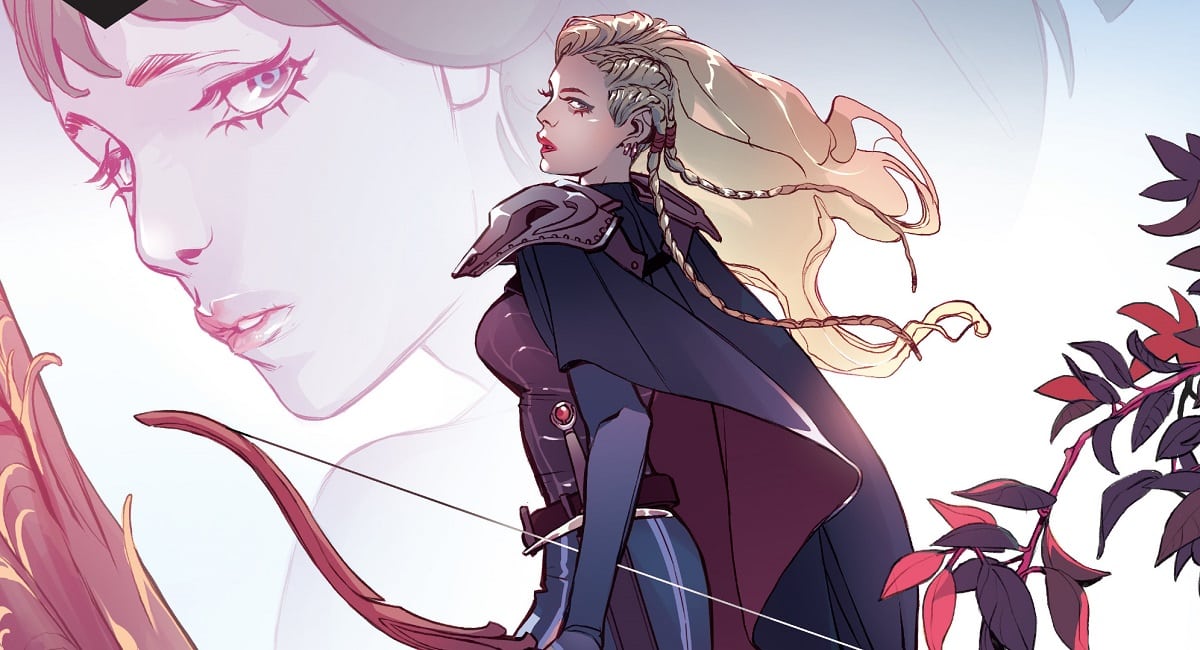
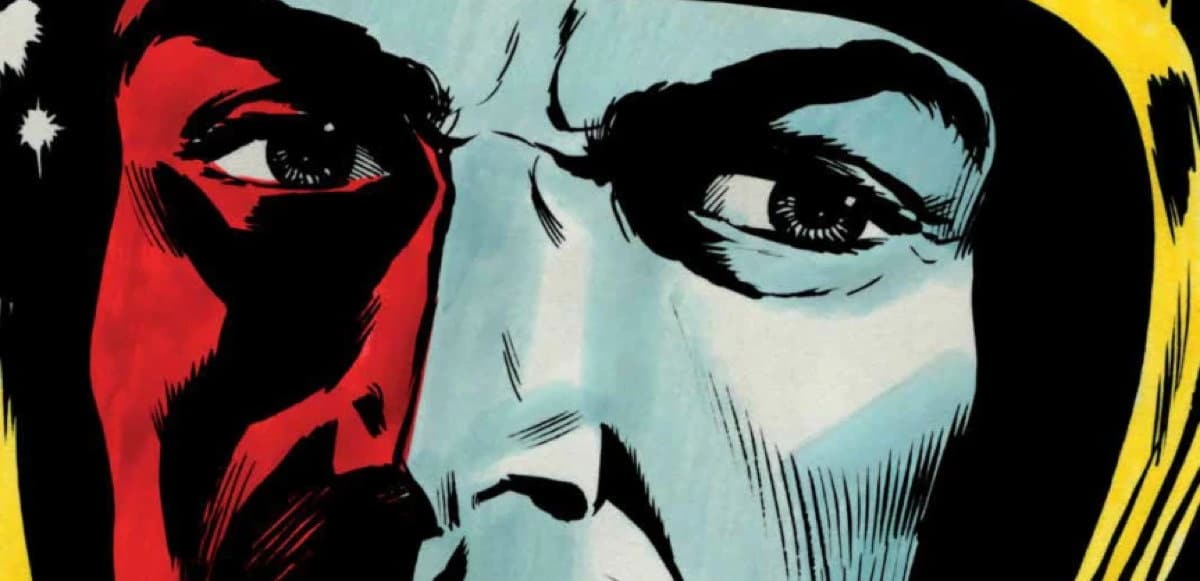
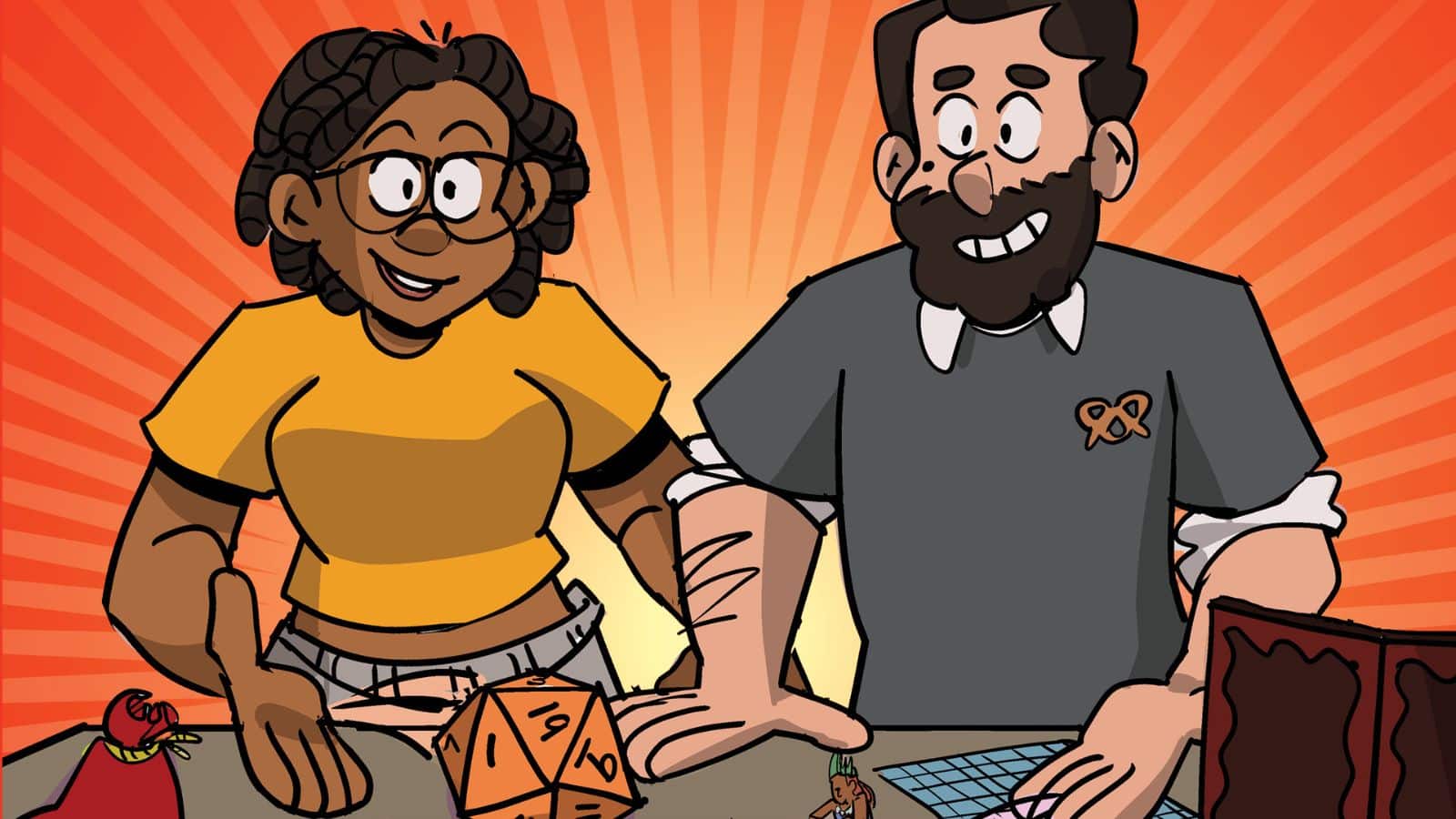
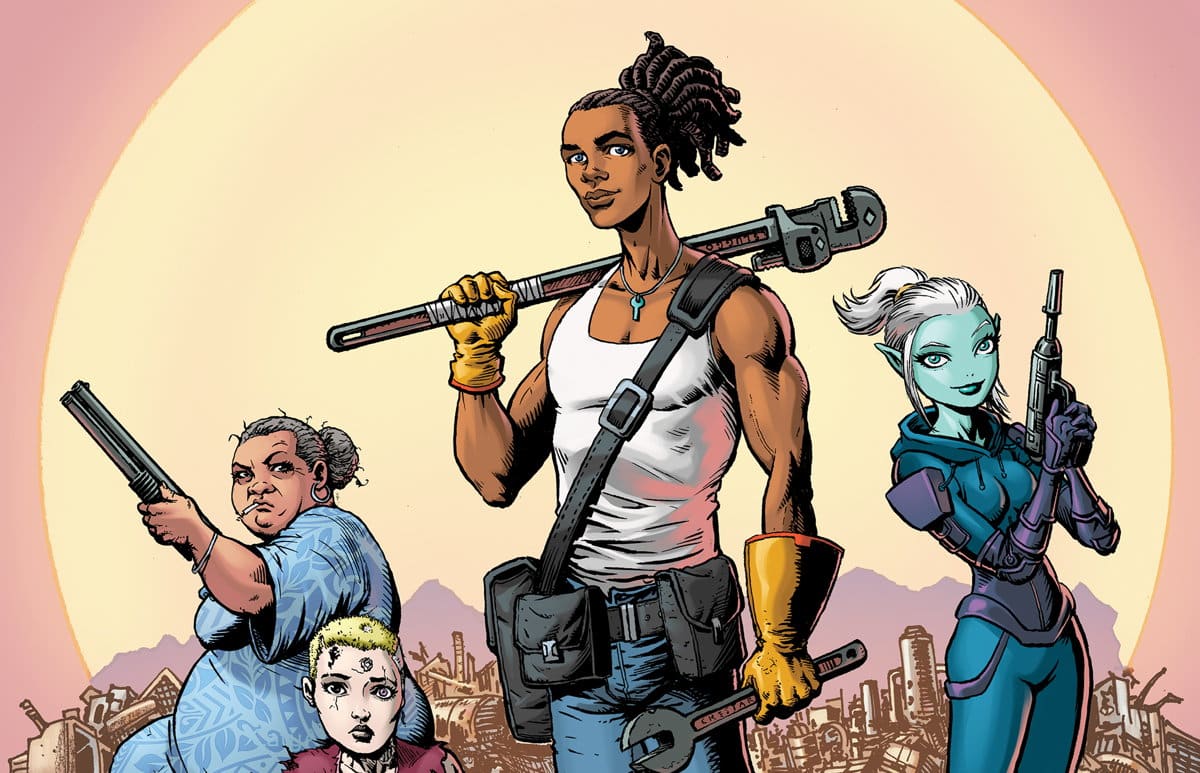


nice blog.thank you so much.
Steve Blum, it’s Steve Blum.
Comments are closed.